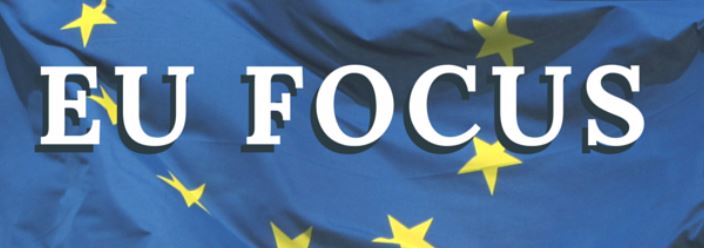The United Kingdom of Great Britain and Northern Ireland is fixed in Europe – by tectonic-geographic reality and socio-cultural history. These constitute our inescapable frameworks of identity. No rational Christian Brexit-er (or #BeLeaver) is talking about the UK “leaving Europe”: it is a lazy figure of speech, which plays to the seismic apocalypse of those who seek to induce terror into the debate. Nor is any Christian advocating that we cease working with our neighbours, or that we want the UK to become “detached and self-regarding”, as Lord Deben ungraciously persists in caricaturing the Leave position.
Europe is made of up around 50 independent states; the European Union of 28. Is every European state that’s not a member of the EU “detached and self-regarding”? Are they unwilling to work through diplomatic channels with other European states for peace, justice and the pursuit of the common good? Are they incapable of doing so? No, of course not. We’re all for loving our neighbour: we just have a problem when that neighbour presumes to tell us how much fish we can eat; how many hours we can spend gardening; how much tax we must pay on electricity, and what colour we ought to paint the front door.
European civilisation is imbued with notions of Christian morality and the values of the Enlightenment. It is diverse, organic, syncretic and all-encompassing. After centuries of internecine warfare, the continent finally came to recognise that this religio-cultural homogeneity offered a foundation for peace and prosperity, and so expressions of Christian democracy began to develop which drew together the fractious and heterogeneous strands of national allegiance to forge a new progressive identity for the modern era.
But that identity has been hijacked by an aggressive, coercive, supra-national secularism of categorical imperatives which gnaw at the threads of Europe’s carefully-woven patchwork of civilisations. Or perhaps that’s the way it was designed and planned. The European Union is not a benign fraternal association based on cooperation and collaboration: it is an anti-democratic, bureaucratic, political union which is incrementally imposing an entire corpus of diktats and directives that are antithetical to centuries of the British democratic tradition and common law. It may have begun with the noblest of Christian motives – that is, peace and reconciliation – but you only have to look at what uniform “economic governance” has done to the people of Greece to understand that the EU is fast becoming a threat to peace and social stability.
When people feel detached from their governments, and those in power ride roughshod over the rights and freedoms of the people, history teaches us that those people will rise up. Unity and peace are best maintained when governance is as near to the people as possible, and when that governance is transparent and accountable. Human sympathy spreads outwards from individuals to families, then to extended families and friends, and onwards to form communities, regions and countries, as people discover common ties of kinship, language and culture. God made the nations with diverse qualities, and these variations of national characteristics and cultures display a wonder of creation. If the story of the Tower of Babel teaches us anything, it is that segregation occurs along these lines, and that attempts to re-build a unified tower are doomed to failure.
There was never meant to be a bland uniformity: totalitarian governments which have attempted to impose socio-political conformity have presided over nationalistic discontent and precipitated civil wars. Free states extend the hand of peace and friendship to their neighbours in an appreciation of other cultures and nations. The love of one’s own country permits an understanding of the love others have for theirs. No amount of patriotic feeling, nationalistic zeal or blindness to national diversity can lead to war: war is the manifestation of the lust for power and domination in pursuit of religious ideals or political utopianism. These have been the great scourge of Europe, and one of the principal barriers to their advance has been the patriotic resistance of nations determined to defend their own rights, liberties and heritage.
There are many voices screeching to be heard in the cacophony of the EU Referendum. The question of leaving or remaining can’t be reduced to any single issue. But, for this Christian at least, it is about liberty, democracy, transparency, accountability, and the right to sack those rule over me.

